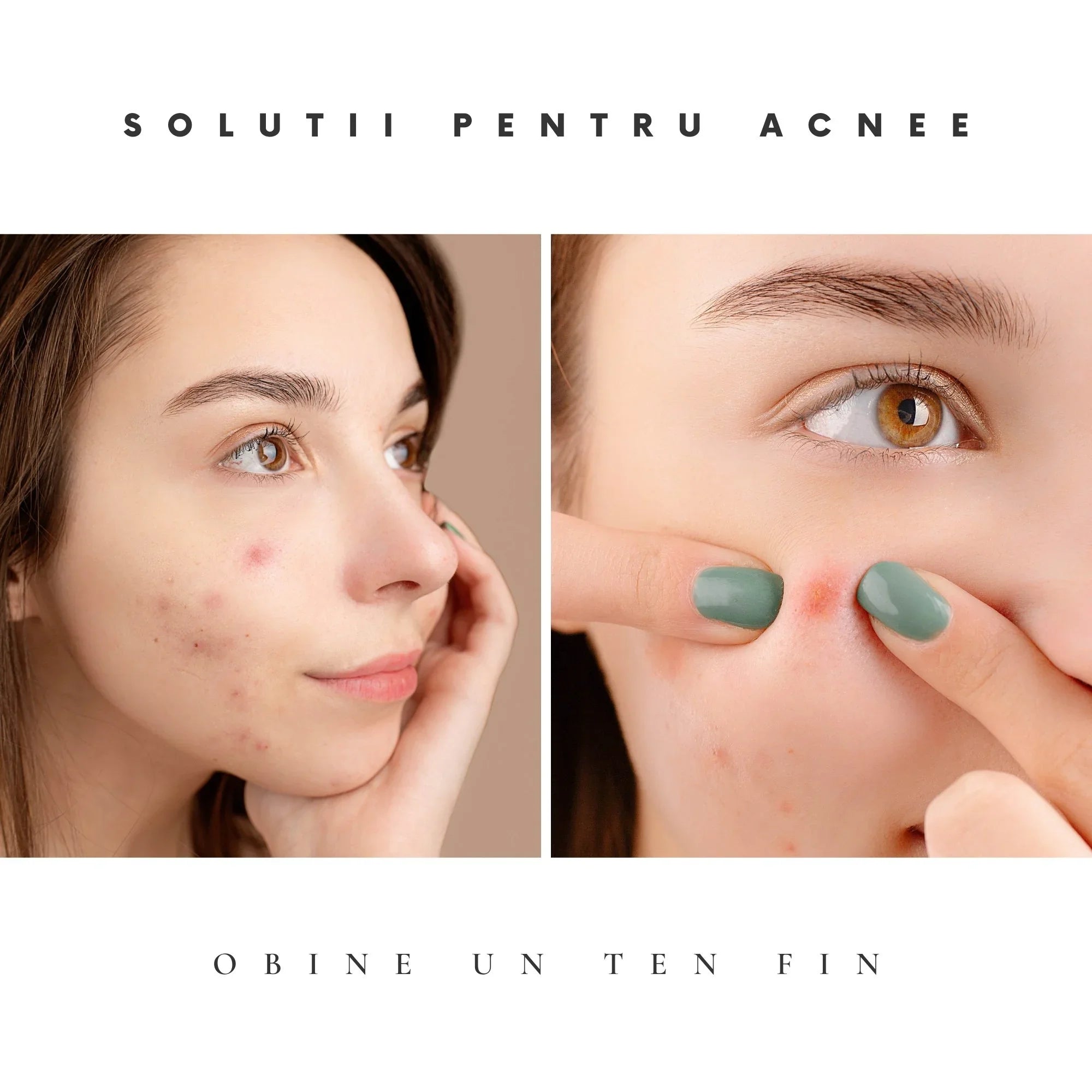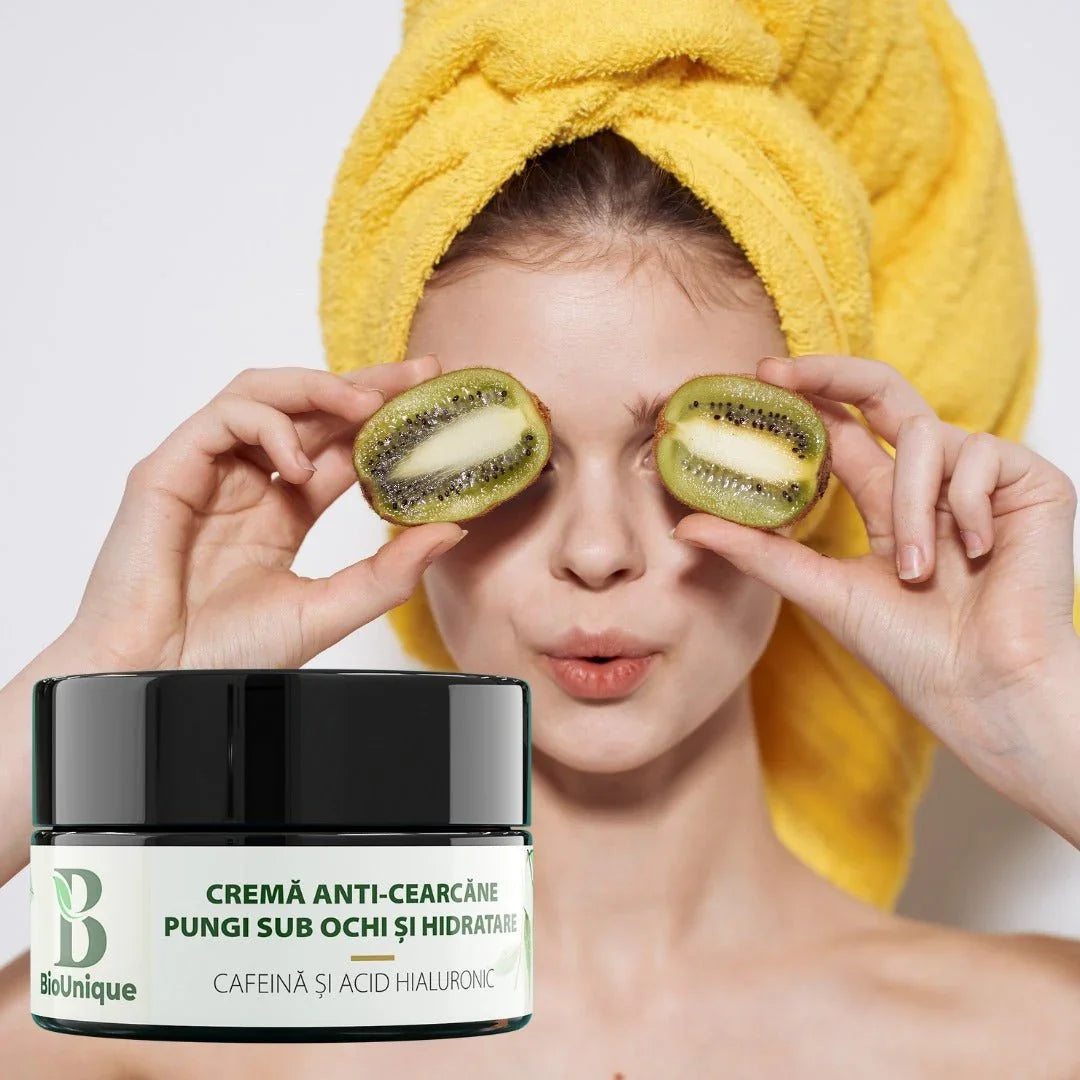
Clean and pimple-free skin: The complete guide to an effective skin care routine
A clean and pimple-free complexion can be a source of confidence and a reflection of our skin's health. Unfortunately, many people face problems related to acne and pimples that appear on the face, neck or back. These conditions can be caused by many factors, including hormonal imbalances, poor diet, stress or poor hygiene. But with an effective and regular skin care routine, you can improve the appearance and health of your skin. In this article, we will explore the essential steps to have a clear and pimple-free complexion.
Causes of pimples
Pimples and acne are common skin problems, and many people struggle with them at some point in their lives. There are a variety of causes that can lead to pimples, including internal and external factors.
Internal factors can include hormonal imbalances, such as increased androgen levels during puberty or before menstruation, as well as stress and anxiety. Also, digestive problems or other medical disorders can lead to acne.
On the other hand, external factors that can contribute to pimples include excessive sun exposure, pollution, excessive sweating, and the use of oily or pore-clogging cosmetics. Also, touching your face with dirty hands or removing makeup incorrectly can lead to bacteria build-up and clogged pores.
It is important to understand that the appearance of pimples can be influenced by a combination of internal and external factors, and a proper skin care routine can help prevent and treat acne.
How to properly clean your face
Proper skin cleansing is essential to keeping your skin clean and healthy.
Here are some important steps for effective skin cleansing:
- Wash your face with warm water and a cleansing gel: Start by washing your face with warm water to open pores and remove dirt and excess sebum. Use a cleansing gel according to your skin type, making light circular movements. Avoid using soap as it can dry out the skin.
- Use a toner: After cleansing, it's important to use a toner that matches your skin type to balance your skin's pH and remove any traces of dirt or makeup.
- Exfoliate: Using an exfoliator once or twice a week can help remove dead skin cells and prevent breakouts. Choose an exfoliator according to your skin type and apply it with light movements, avoiding the eye area.
- Face mask: A face mask applied once or twice a week can help remove impurities and reduce acne. There are many types of masks available, so make sure you choose one that suits your skin type.
- Moisturize: Finish the cleansing routine with a moisturizer suitable for your skin type to keep skin hydrated. Avoid using a cream that is too greasy, as this can clog pores and lead to breakouts.
Types of cleaning products and how to choose them:
Cleaning gels
They are suitable for all skin types and are the most popular cleansers. Cleansing gels remove dirt, excess sebum and make-up without drying the skin. Make sure you choose a gel that suits your skin type.
Cleansing milk
The cleansing milk is suitable for dry or sensitive skin. It gently cleanses the skin without drying it.
Toners:
Toners are an important step in a skin care routine as they help remove any traces of dirt or makeup left on the skin after cleansing. Toners also help balance the skin's pH, which can be disrupted by cleansers.
It's important to choose an alcohol-free toner, as alcohol can dry and irritate the skin, especially for sensitive or acne-prone skin. Instead of alcohol, look for ingredients like salicylic acid , niacinamide or natural extracts, which have soothing and anti-inflammatory properties.
To use a toner properly, apply a small amount to a makeup remover pad and gently pat the skin. Avoid rubbing or pulling the skin, as this can irritate and sensitize the skin.
How to treat existing pimples
There are various options for treating already formed pimples. Before choosing a treatment method, it is important to consider your skin type and the severity of your acne.
Available options include:
- Acne lotion, cream , or gels that contain active ingredients, such as benzoyl peroxide or salicylic acid, that help fight acne. It is important to choose such a product according to your skin type and condition.
- Antibiotics: in more severe acne cases, the dermatologist can prescribe antibiotics, either in the form of creams or gels, or in the form of pills or capsules.
- Light therapy: Some clinics offer light therapy, which involves exposing the skin to certain wavelengths of light that help reduce inflammation and acne.
- Natural treatments: There are also natural remedies that can help treat acne, such as tea tree oil, clay, or plant extracts with antibacterial and anti-inflammatory properties.
Skin care is an important routine in maintaining healthy and pimple-free skin. It's essential to pay attention to factors that can contribute to acne, such as diet and stress, and follow a daily skin cleansing routine. Choosing the right products for your skin type and avoiding products with irritating or harsh ingredients can make a big difference in achieving clear and healthy skin. Follow these simple steps and you'll have glowing, pimple-free skin in no time. Don't forget to consult a skin care specialist if you have persistent acne or other skin problems.



Leave a comment
This site is protected by hCaptcha and the hCaptcha Privacy Policy and Terms of Service apply.